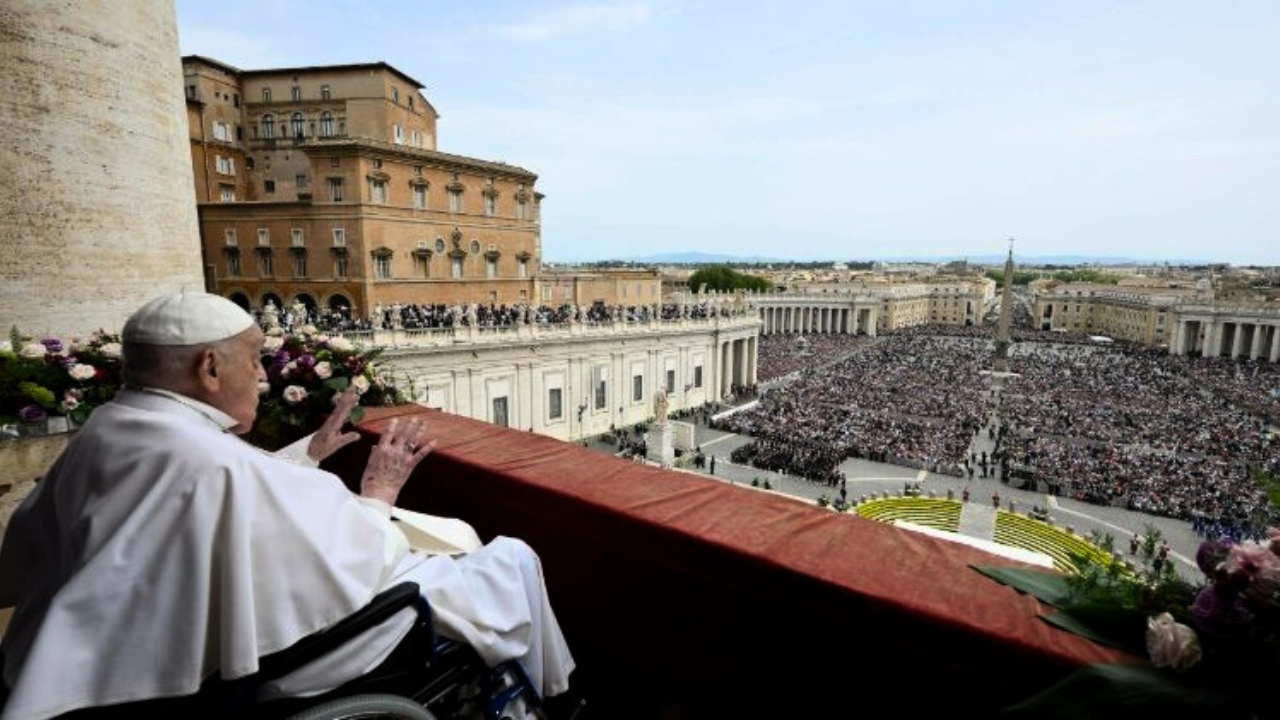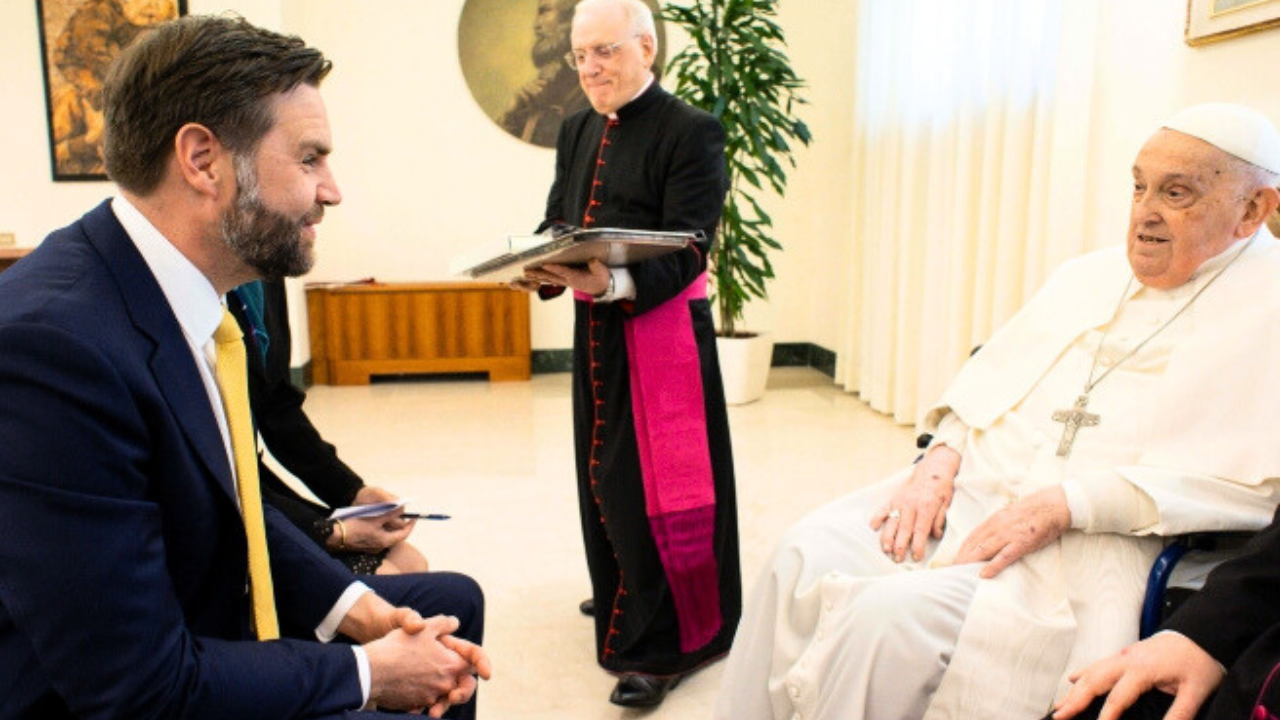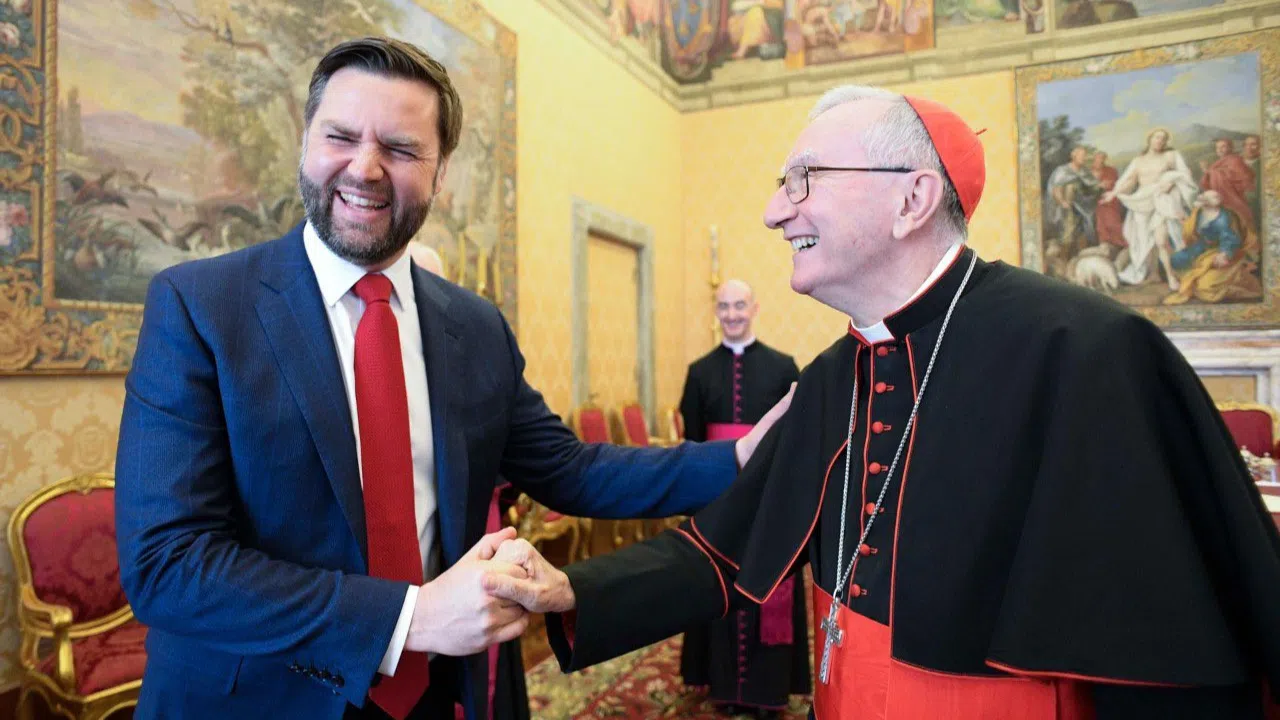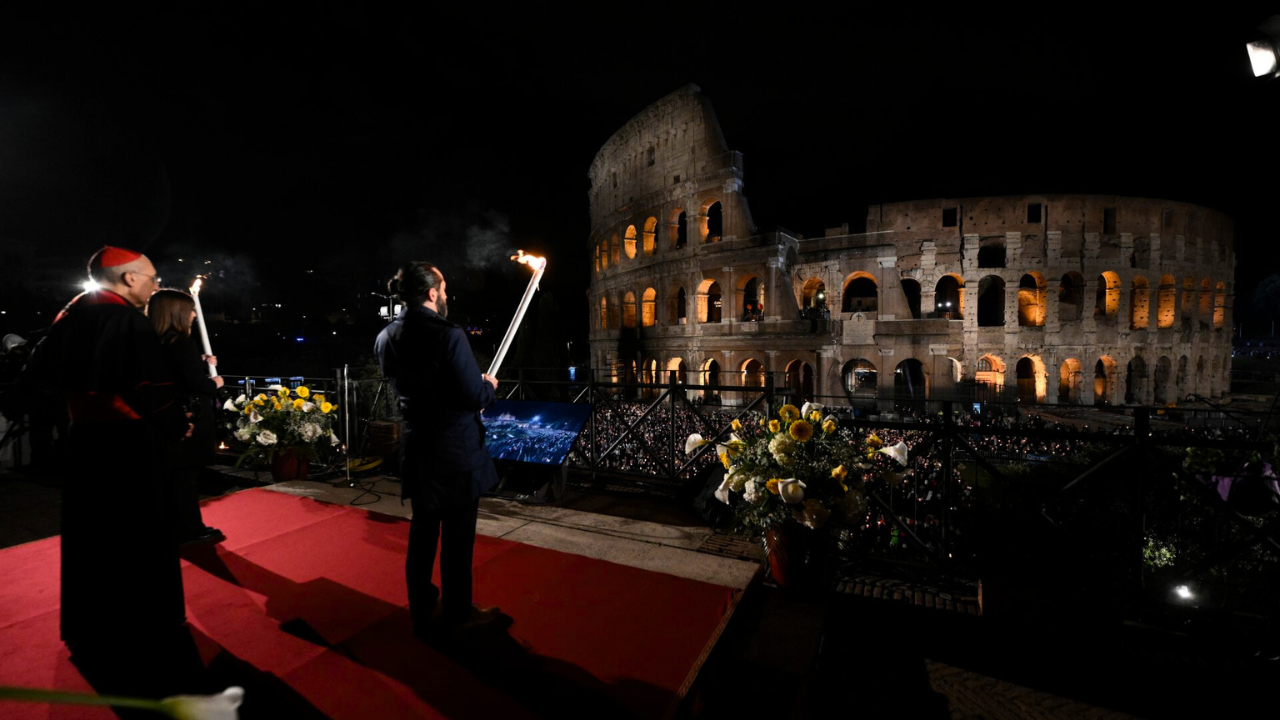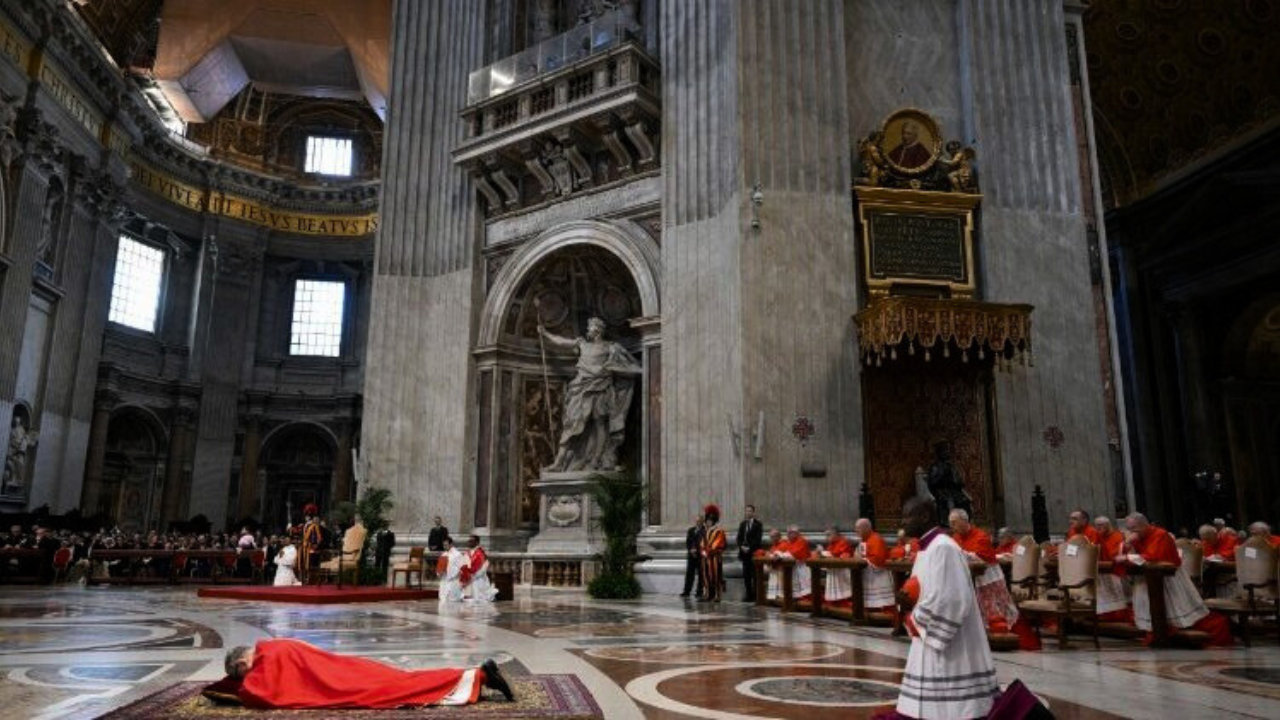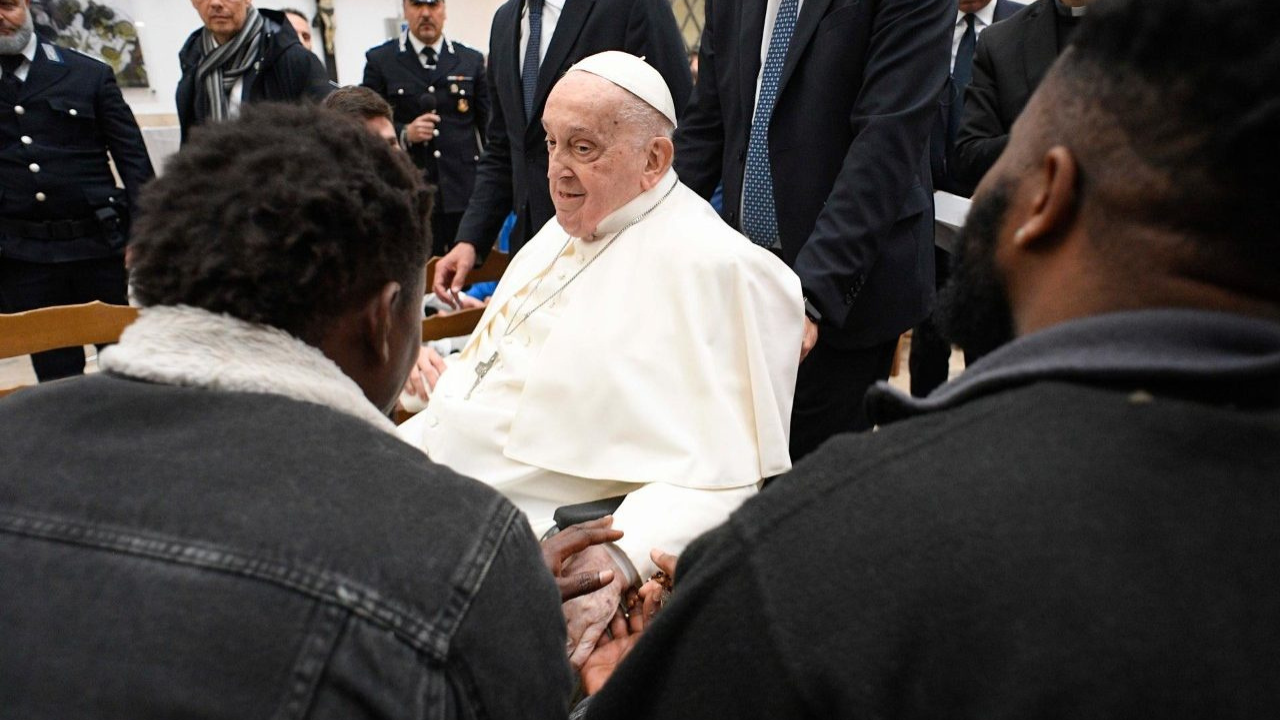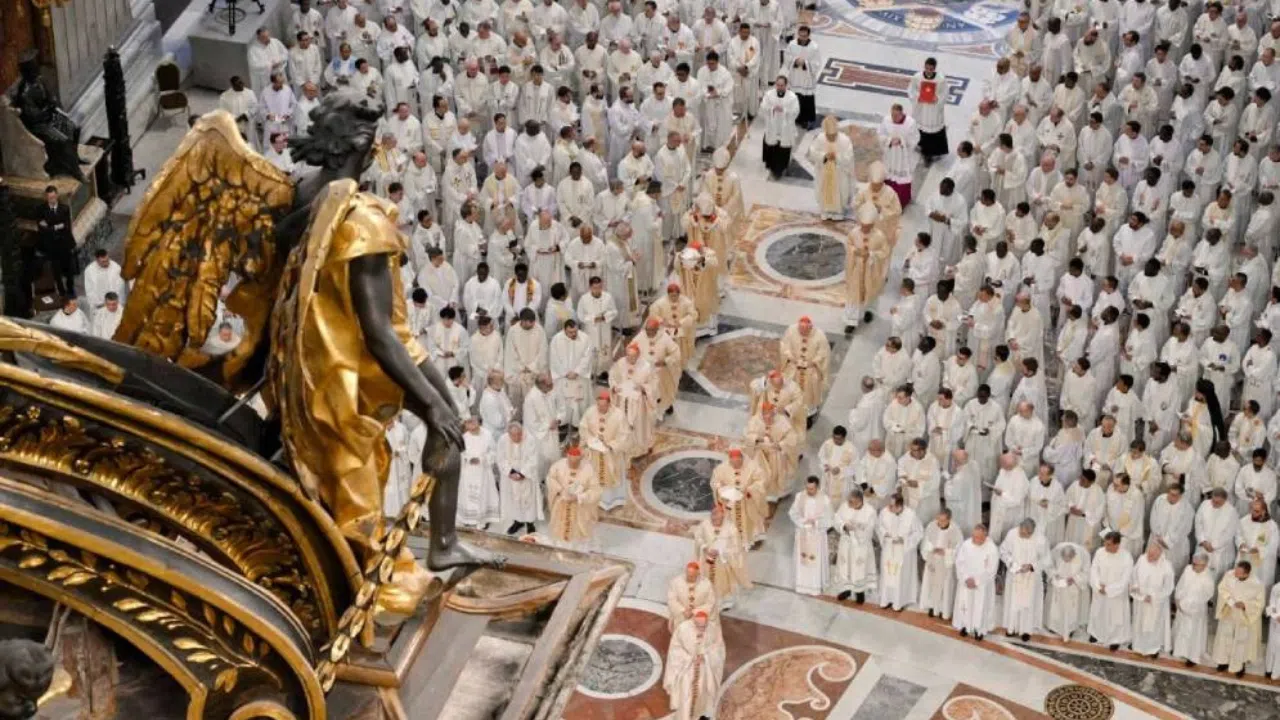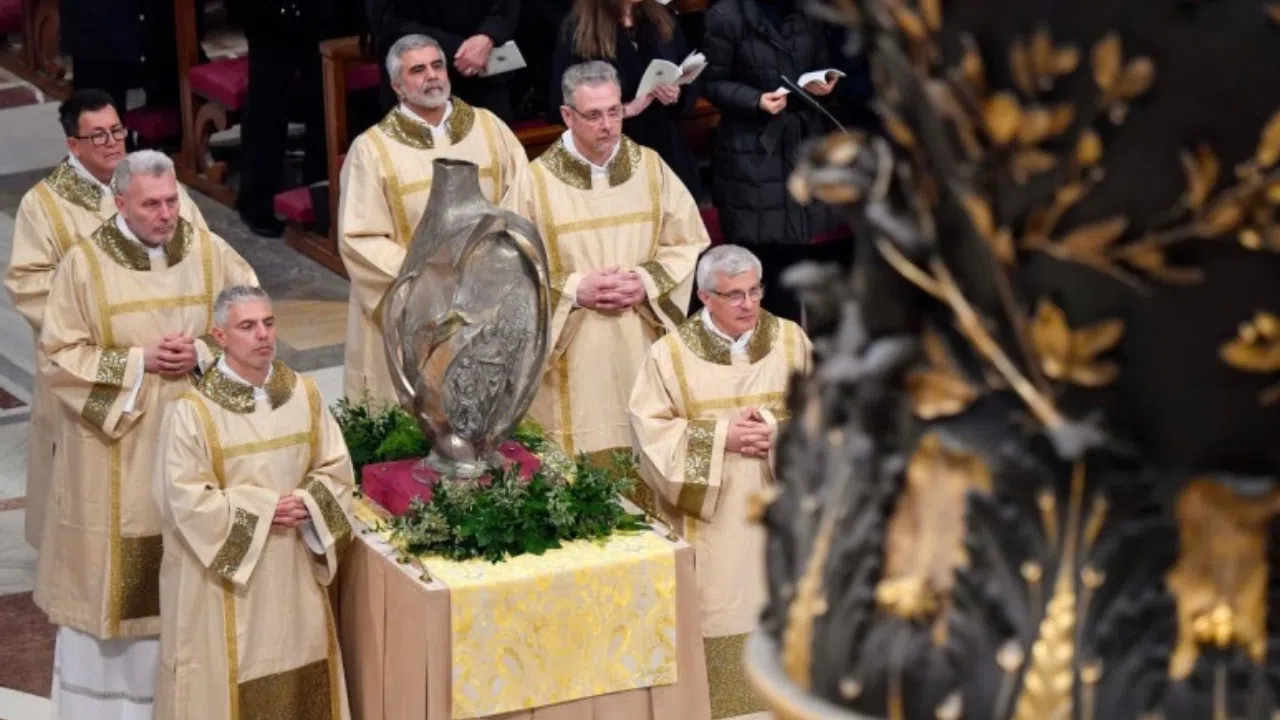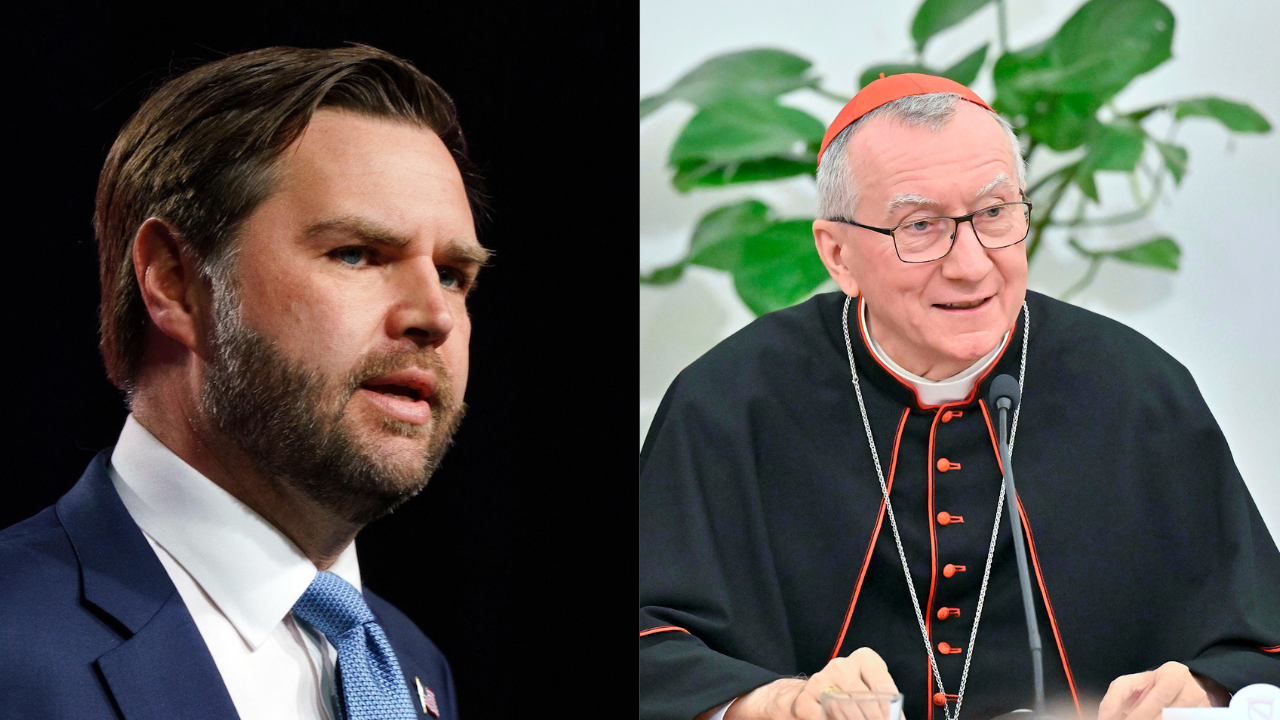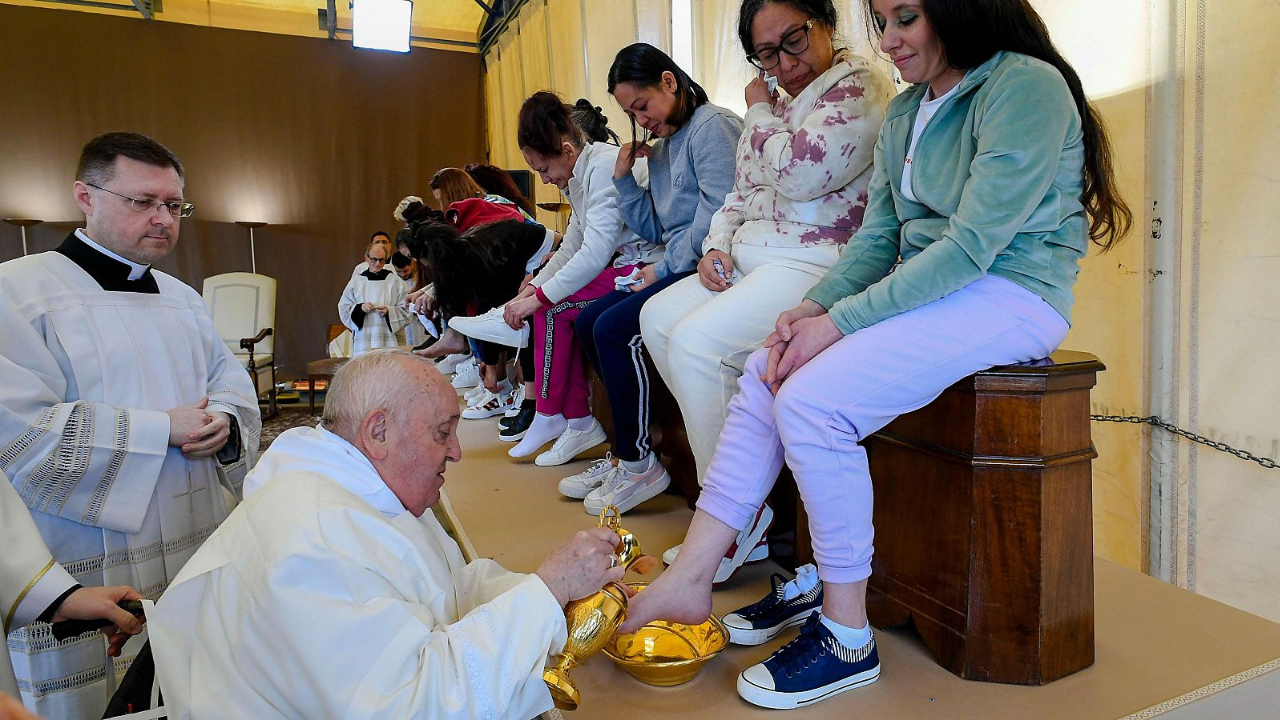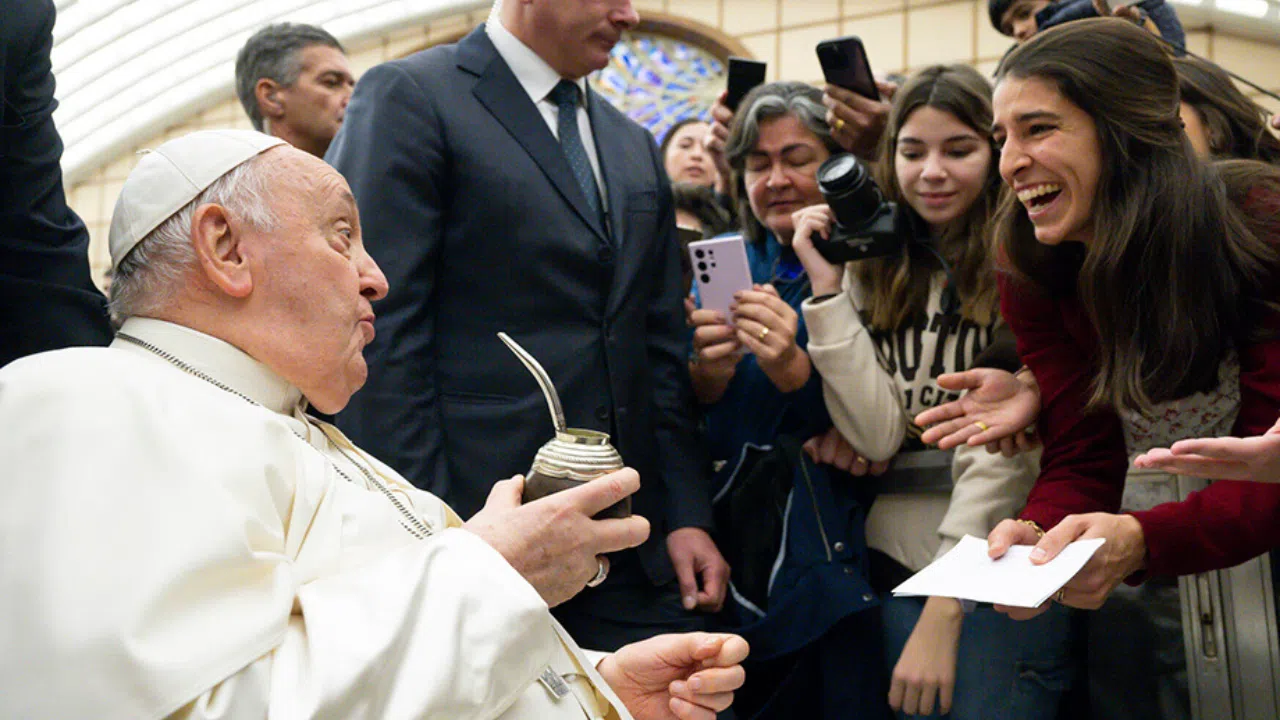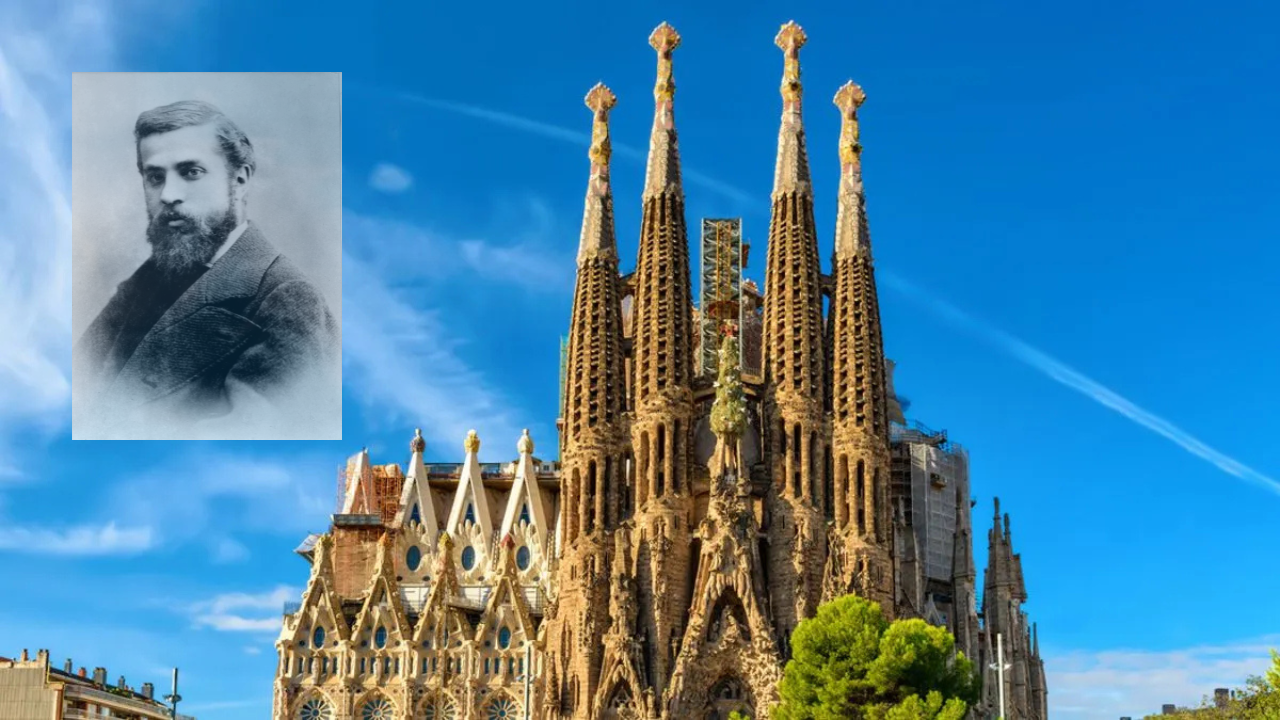WRITTEN
SPEECH OF THE HOLY FATHER
Dear Young Friends,
When I speak spontaneously, I do it in Spanish. No? Because I donâ??t know the English language. May I do it? Thank you very much! Here is Father Mark, a good translator!
First of all, some sad news. Yesterday, as Mass was about to begin, one of the towers fell, like that one over there, and injured a young lady working there and she died. Her name is Cristal. She was helping in the organization of that Mass. She was 27 years old. She was young like you and she was working for a group called 'Catholic Relief Servicesâ?. She was a volunteer. I would like all of us, together, you who are young people just like her, to pray for a moment in silence, and then to call upon our heavenly Mother. Let us pray.
(Silence â?¦ Ave Maria)
Let us also say a prayer for her mother and father. She was their only child. Her mother is flying in from Hong Kong. Her father has come to Manila to wait for her mother.
(Our Fatherâ?¦)
It is a joy for me to be with you this morning. I greet each of you from the heart, and I thank all those who made this meeting possible. During my visit to the Philippines, I wanted in a particular way to meet with young people, to listen to you and to talk with you. I want to express the love and the hopes of the Church for you. And I want to encourage you, as Christian citizens of this country, to offer yourselves passionately and honestly to the great work of renewing your society and helping to build a better world.
In a special way, I thank the young people who have offered words of welcome to me: Jun, Leandro and Rikki. Thank you very much.
And the smallâ?¦ the small representation of women. Too small! Women have much to say to us in todayâ??s society. Sometimes we are too 'machistaâ?; we donâ??t make room for women. Women are able to see things differently than men. Women can ask questions that we men just donâ??t get. Pay attention. She [pointing to Junâ??s friend] today asked the one question that doesnâ??t have an answer. And she couldnâ??t say it in words. She had to say it with tears. So that, when the next Pope comes to Manila, there should be more women (applause).
I thank you, Jun, for being so brave in talking about your experience. As I just said, your question, deep down, is almost unanswerable. Only when we are able to weep over the things that you experienced, can we understand and give some kind of response. The great question for everybody is: 'Why do children suffer?â?. Why do children suffer? Only when our hearts can ask this question and weep, can we begin to understand. There is a worldly compassion which is completely useless. You said something about this. A compassion which, at most, makes us reach into our pocket and take out a coin. If Christ had that kind of compassion, he would have passed by, cured three or four people, and then returned to the Father. Only when Christ wept, and he was capable of weeping, did he understand our troubles. Dear young men and women, our world today needs weeping. The marginalized weep, those who are neglected weep, the scorned weep, but those of us who have relatively comfortable life, we donâ??t know how to weep. Certain realities of life are seen only with eyes that are cleansed by tears. I ask each one of you to ask: Can I weep? Can I weep when I see a child who is hungry, on drugs and on the street, homeless, abandoned, mistreated or exploited as a slave by society? Or is my weeping the self-centred whining of those who weep because they want to have something else? This is the first thing I would like to say to you. Letâ??s learn to weep, the way [Glyzelle] taught us today. Letâ??s not forget this witness. She asked the big question â?? why do children suffer? â?? by weeping; and the big answer which we can give, all of us, is to learn how to weep.
In the Gospel, Jesus wept. He wept for his dead friend. He wept in his heart for the family which lost its daughter. He wept in his heart when he saw the poor widowed mother who was burying her son. He was moved and he wept in his heart when he saw the crowds like sheep without a shepherd. If you donâ??t learn how to weep, you are not a good Christian. And this is a challenge. Jun Chura and his friend who spoke today posed this challenge. When they ask us: Why do children suffer? Why does this or that tragedy occur in life?, let us respond either by silence or with a word born of tears. Be brave. Donâ??t be afraid to cry!
Then we heard from Leandro Santos, who was the second to speak. He asked questions about information and technology. Today, with so many kinds of media, we are informed, even over-informed. Is this a bad thing? No. It is good and useful, but we do run the risk of information overload. We have plenty of information, but maybe we donâ??t know what to do with it all. We risk becoming 'museumsâ?, storing up all sorts of things but not knowing what to do with them. We donâ??t need young people who are storehouses, but young people who are wise.
You can ask me: Father, how can I become wise? This is another challenge: the challenge of love. What is the most important lesson which you have to learn at the University? What is the most important lesson that you have to learn in life? It is learning how to love. This is the challenge which life sets before you today. Learning how to love. Not just how to accumulate information. There comes a time when you donâ??t know what to do with it all. Itâ??s a storehouse. Unless, through love, all this information can bear fruit.
For this to happen, the Gospel proposes to us a serene and tranquil thing to do. It is to use the three languages: the language of the mind, the language of the heart and the language of the hands. All three together, harmoniously: what you think, you feel and you do. Your information descends to the heart, moves it and gets translated into action. And all this in a harmonious way: I think what I feel and do, I feel what I think and what I do, and I do what I think and what I feel. The three languages. Are you ready to repeat these three languages? Thinking, feeling and acting. Say those words back to me. And all of this harmoniously.
True love is both loving and letting oneself be loved. It is harder to let ourselves be loved than it is to love. That is why it is so hard to achieve the perfect love of God, because we can love him but the important thing is to let ourselves be loved by him. True love is being open to that love which was there first and catches us by surprise. If all you have is information, you are closed to surprises. Love makes you open to surprises. Love is always a surprise, because it starts with a dialogue between two persons: the one who loves and the one who is loved. We say that God is the God of surprises, because he always loved us first and he waits to take us by surprise. God surprises us. Letâ??s allow ourselves to be surprised by God. Letâ??s not have the psychology of a computer, thinking that we know everything. What do I mean? Think for a moment: the computer has all the answers: never a surprise. In the challenge of love, God shows up with surprises.
Think of Saint Matthew. He was a good businessman. He also betrayed his country because he collected taxes from the Jews and paid them to the Romans. He was loaded with money and he collected taxes. Then Jesus comes along, looks at him and says: 'Come, follow meâ?. Matthew couldnâ??t believe it. If you have some time later, go look at the picture that Caravaggio painted about this scene. Jesus called him, like this (stretching out his hand). Those who were with Jesus were saying: '[He is calling] this man, a traitor, a scoundrel?â? And Matthew hangs on to his money and doesnâ??t want to leave. But the surprise of being loved wins him over and he follows Jesus. That morning, when Matthew was going off to work and said goodbye to his wife, he never thought that he was going to return in a hurry, without money to tell his wife to prepare a banquet. The banquet for the one who loved him first, who surprised him with something important, more important than all the money he had.
So let yourselves be surprised by God! Donâ??t be afraid of surprises, afraid that they will shake you up. They make us insecure, but they change the direction we are going in. True love makes you 'burn lifeâ?, even at the risk of coming up empty-handed. Think of Saint Francis: he left everything, he died with empty hands, but with a full heart.
Do you agree? Not young people who are 'museumsâ?, 'storehousesâ?, but young people who are wise. To be wise, use the three languages: think well, feel well and act well. And to be wise, let yourselves be surprised by Godâ??s love, then go out and burn life!
Thank you for your contribution today!
The one who came with a good idea to help us to see how to get ahead in life was Rikki. He talked about all his activities, everything he is doing, everything that young people are doing, all the things that they can do. Thanks, Rikki, thanks for all that you and your friends are doing.
But I have a question. You and your friends are giving and giving, helping other people. But what about you? Do you let them give something to you? Ask yourselves, in your heart. In the Gospel we just heard, there is a phrase I think is the most important of all. The Gospel says that Jesus looked at that young man and loved him. When we see Rikki and his friends we like them because they do really good things, but Jesus tells us what is the most important thing. Jesus says: 'Only one thing is lackingâ?. Letâ??s each of us listen silently to these words of Jesus: 'Only one thing is lacking to youâ?.
What is lacking to me? To all of you, whom Jesus loves so much because you give so generously to others, I ask: 'Do you let people give you that other kind of wealth that you donâ??t possess?â?
The Sadducees and the teachers of the Law in Jesusâ?? day gave much to the people: they gave the Law, they taught, but they never let the people give them anything. Jesus had to come so that he could be moved by people. How many young people â?? Iâ??m not talking about you â?? but how many young people like you here today know how to give, but have not yet learned how to receive?
Only one thing is lacking. Become a beggar. Thatâ??s what is lacking; learning to beg from those to whom we give. This is not easy to understand. Learning to beg. Learning to receive from the humility of the people we help. Learning to be evangelized by the poor. The persons we help, the poor, the sick, orphans, have much to give us. Will I become a begger and also ask this? Or am I sufficient and will I only give? You who live by always giving, and think that you need nothing, do you realize that you are poor yourself? Do you realize that you are very poor and that you need what they can give you? Do you let yourself be evangelized by the poor, by the sick, by those you assist? This is what can help all those people who are committed like Rikki to trying to give to others: it is learning to stretch out our own hands from our poverty.
There are a couple of points which I had prepared. The first, and I have already said it, is about learning to love and to be loved. There is another challenge, the challenge of integrity. And the challenge of concern for the environment. This is not only because this country, more than many others, is likely to be seriously affected by climate change.
Finally there is the challenge of caring for the poor. Loving the poor. Your bishops want you to look at the poor in a special way this year. Do you think about the poor? Do you do anything for the poor? And do you ask the poor to give you that wisdom which they have? This is what I want to say to you. Pardon me that I read practically nothing of what I had prepared. But there is a phrase which gives me a little bit of consolation: 'Realities are greater than ideasâ?. 'Realities are greater than ideasâ?. And the reality which [the young people who spoke] described, your reality, is greater than the ideas which I had prepared. So thank you! Thank you very much! And pray for me!
